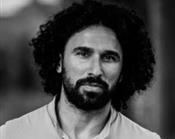FACTSHEET
MASTER’S PROGRAMME HISTORY OF POLITICS AND SOCIETY
Welcome!
The Department of History and Art History, as well as the groups Political History and Social and Economic History, are delighted to welcome you as a Master’s student! You will encounter a group of lecturers who are eager to share their knowledge of political, social and economic history with you and to provide you with the skills and knowledge to enter the labour market wellprepared.
This programme book gives you an overview of the Master’s programme’s aims, modules and lecturers, and also provides all kinds of practical information. We will do our utmost to make your year in Utrecht as worthwhile as possible, not only by offering excellent teaching, but also by providing a number of extra-curricular events, such as a meeting with alumni and workshops on career orientation.
We hope you will have a fabulous Master’s year in Utrecht!
dr. Irina Marin, coordinator of the Master’s programme
dr. Corinne Boter, core teacher of the Master’s programme, contact for questions about internships


dr. Santje Falcke, core teacher of the Master’s programme, tutor and contact for questions about theses

TAKE A LOOK AT OUR WEBSITE
D R
K
D R I RINA M ARIN D R . C ORINNE B OTER
.
ATE F REDERICK
DO YOU WANT TO PARTICIPATE?
Curriculum Committee
The Curriculum Committee consists of students and staff members who jointly discuss and assess the quality of the education in the Master’s programme. Every year, the committee is looking for new student members. If you are interested in becoming a member, or if you want to contact the committee about the standard of education, please contact the president of the committee, dr. Pim Huijnen: p.huijnen@uu.nl.
CORE TEAM OF LECTURERS
■ ■ ■
DR
MA Programme. Political History. Political and social dynamics of imperial borderlands, nationalism and identity politics.
■ ■ ■
Economic and social history. Agency, gender, family history, economic development





■ ■ ■
Economic and social history, labour history, gender history. Contact for questions about internships.
■ ■ ■
Labour market integration and migrant naturalization. Contact for questions about theses.
■ ■ ■
Political History, history of the state, neoliberalism, Second World War

■ ■ ■
Political History, citizenship, Dutch history, 1960s, social movements
■ ■ ■
Economic history, food crises and famines.


■ ■ ■
Political history. Nationalism, urban movements, civil society, identity, memory and heritage, modern German history.
I RINA M ARIN Coordinator
DR. C ORINNE B OTER
DR . S WANTJE F ALCKE
DR S ARAH C ARMICHAEL
P ROF . DR . J AMES K ENNEDY
DR C HRISTIAN W ICKE
P ROF . D R . I DO DE H AAN
D R . J ESSICA D IJKMAN
STUDY ADVISORS
Facing issues with your studies? The study advisors are there to help and support you to successfully complete your degree. They can act as confidential counsellors, advise on issues regarding illness and special circumstances and, together with you, look at the possibility to cope with the studies while dealing with disabilities or chronic illnesses. They can also help with specific arrangements and procedures, such as complaints, objections and appeals. You can find more information on the university website: https://students.uu.nl/en/hum/history-of-politics-and-society/contact/study-advisor. Click on the name of the study advisor to see who to contact if you have questions about your programme



■ ■
■ E VELIEN H AZEWINKEL ■ ■ ■ M IRJAM VAN D EUTEKOM ■ ■ ■ M AJED Z
AIN
THIS PROGRAMME
The Master’s programme History of Politics and Society provides you with a thorough understanding of the historical roots of the most important political and societal issues that politicians, journalists and policy makers are concerned with today. You will study the historical development of democracy, civil society, citizenship, and economic inequality in an international comparative perspective. The programme focuses largely on the 19th and 20th centuries and has an interdisciplinary approach: you will combine historical research with concepts and explanations derived from the social sciences, in particular about the role of institutions. Institutions (not just organisations but also rules, customs and practices) form ‘the rules of the game’: they give our present society its form, but they are also the result of a historical process. Think, for instance, of the rules and practices that make our democracy work, or of the way in which health care systems or educational systems are organized. The programme will provide you with insight into the way in which such institutions have developed, and into their functions and consequences.
EDUCATIONAL PHILOSOPHY
The programme is composed of two semesters, which are both dedicated to the acquisition of specific skills and knowledge. In the first semester, you study in seminar groups with a maximum size of twenty students. Together, you discuss essential concepts from political science, sociology and economics and you learn how to do comparative and long-term historical research. You also take two electives which centre on a historical issue with present-day relevance, and which allow you to specialise in a specific area.
In the second semester you will put the acquired knowledge and skills into practice in writing your thesis, but also in an internship or in the form of the Politics and society lab. Both the internship and the lab are designed to allow you to perform as an individual within a collective that works towards a specific objective. You will write your thesis individually, but will stay in close contact with your supervisor and peer group.
Internship and Politics & society lab
The internship offers you the opportunity to learn how to apply academic skills and knowledge in real-life situations and to gain practical experience in your field, in order to prepare you for employment after graduation. Students who do not want to do an internship, or are unable to find a suitable internship position before the middle of January 2021, can replace it by the Politics and society lab.
Finding a suitable internship takes time, so it is important to start early. In September you will be invited to a meeting where you will be provided with more information on the requirements for the internship but also with examples of internships by students of last year and the year before, a list of organisations that you may contact, and advice on how to go about it.
More information on the requirements for the internship and the Politics & society lab, the preparations, the assessment, the role of the internship/lab supervisor and your own responsibilities will be in the Master’s internship/lab guide which you will receive in September.
Thesis
The thesis is the culmination of your entire Master’s education: with it you demonstrate your ability to formulate research questions, conduct independent research, and present your results in written form according to the highest academic standards. The idea is to contribute to a current academic discussion or debate by way of a systematic

COURSE PLANNER: You will find more information on this programme’s courses in the Course
Planner: https://cursusplanner.uu.nl /english/study/GE-PSHM16 LEARNING
OBJECTIVES
After graduating from the Master in History of Politics and Society, you will:
✓ Have learned how to use comparative research methods and how to analyze longterm developments.
✓ Be prepared for careers in public administration, NGOs, journalism, politics, and socioeconomic organisations.
✓ Be able to use knowledge of the past to help explain and solve current-day issues.
✓ Obtain the knowledge and tools to thoughtfully interpret the past in order to benefit the present.

analysis of both primary and secondary source material, an analysis that ultimately guides your arguments and leads to (new) conclusions.
For the thesis a limited number of broad themes will be offered, and for each of these themes groups of around six students will be formed; to each group a supervisor will be assigned. In October you will be asked to indicate your preference for one or two of these themes. In study period 2 you will, in the course Themes in the History of Politics and Society, write a research design for your thesis. In study period 3 and/or 4 you will do the research and write the thesis.
More information on issues such as how to find a good topic, length, deadlines, the role of your thesis supervisor and your own responsibilities, will be in the Master’s thesis guide which you will receive in October.
THIS MASTER AND OUR SOCIETY
Do referenda endanger democracy? Why is it so difficult to combat global economic inequality? How can sustainability be achieved and what are the social-political challenges it faces?
During the Master’s programme History of Politics and Society you will obtain the knowledge and tools to thoughtfully interpret the past in order to benefit the present. The programme thereby offers a solid preparation for the labour market, and prepares you for careers in public administration, NGOs, journalism, politics, and socioeconomic organisations.
As a student you will develop new academic skills and perspectives: you will learn how to use comparative research methods and how to analyze long-term developments. Through internships, trainings and engaged supervision, the Master’s programme also offers a good preparation for the labour market. In this way we train you as a historian able to use knowledge of the past to help explain and solve current-day issues.
IMPORTANT FOR HUMANITIES STUDENTS
New students students.uu.nl/hum-new
Practical information for new students at the Humanities faculty.
Academic calendar students.uu.nl/hum-calendar
Information about days off, course registrations and change-of-enrolment days.
UU online

Information about our online systems and how to log in: students.uu.nl/hum-online In need of a manual? IT manuals: https://manuals.uu.nl/en
REGISTRATION, PROCEDURES, INTERNSHIP INFO
Student Information Desk Humanities students.uu.nl/hum-contact
Programme related matters, such as
• course registration
• course schedules
• study results & study progress (Osiris)
• graduation
Student Services students.uu.nl/en/contact/student-services
Studying at Utrecht University in general:
• registration as a UU student

• tuition fees
• elite athletes
• disability or chronic illness
Internship coordinator students.uu.nl/hum-internshipcoordinator


Information about:
• guidelines and procedures
• internship placements
QUESTIONS ABOUT ENTERING THE JOB MARKET
Career Services students.uu.nl/hum-careerservices
Advice on getting a job after graduation through workshops, CV check-up, and coaching. Your programme coordinator will inform you about programme-specific events.
NEED EXTRA HELP?
Study advisor: students.uu.nl/hum-studyadvisor






Student psychologist: students.uu.nl/psychologist
Workshops: Skills Lab: students.uu.nl/en-skillslab
THINKING OF GOING ABROAD ?
International office Humanities: students.uu.nl/hum-io
OTHER FACILITIES
University Library: students.uu.nl/hum-library
Olympos sports centre: olympos.nl/en-us/home.aspx
Parnassos cultural centre: uu.nl/en/parnassos
FACT! You can find your grades, student card and timetable in the MyUU portal and the MyUU app: students.uu.nl/en/myuu and students.uu.nl/en/ myuu-app
FACT! In the second semester, you will have to register in Osiris for courses you wish to attend. If you want to switch courses, you can do so on the change-ofenrolment days before the start of the relevant block.
FACT! Deadlines are always listed in the course syllabus, which your lecturer will provide approximately 2 weeks prior to the course’s ’start.
FACT! If you need more information about specific aspects of your programme, e.g. internships or thesis, please see the Curriculum page on the programme website via students.uu.nl/hum.
FACT! Check students. uu.nl/hum-studentlife for information about living, jobs, sports and leisure in Utrecht!
© June 2023. Utrecht University, Faculty of Humanities. Every effort has been made to ensure that the information presented in this factsheet is correct and up to date. Utrecht University cannot be held liable for any false, inaccurate, or incomplete information presented herein.



















